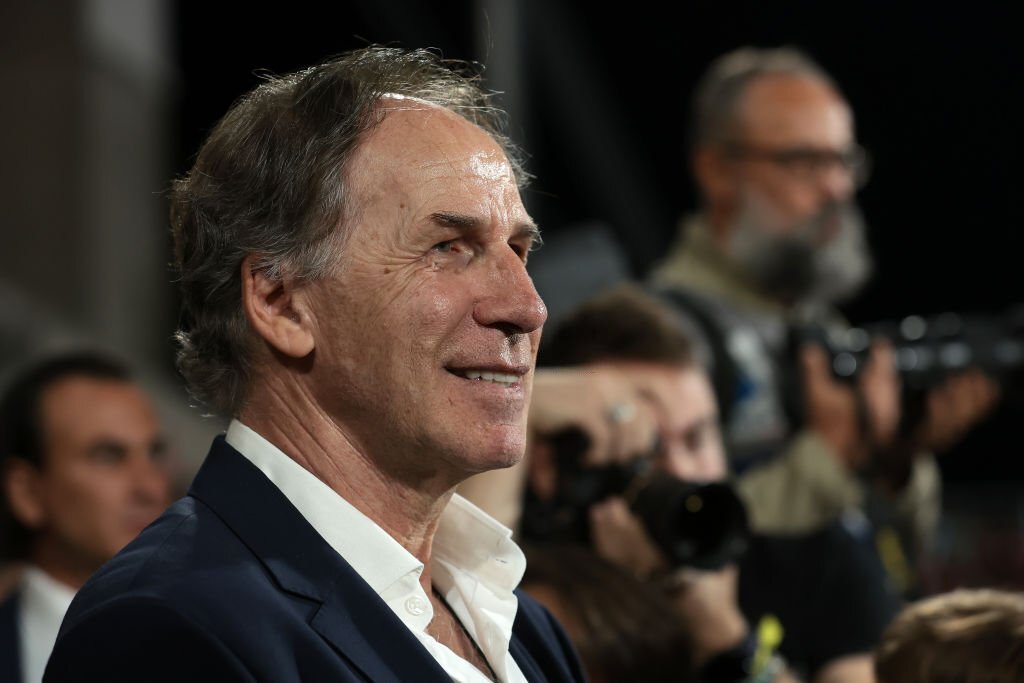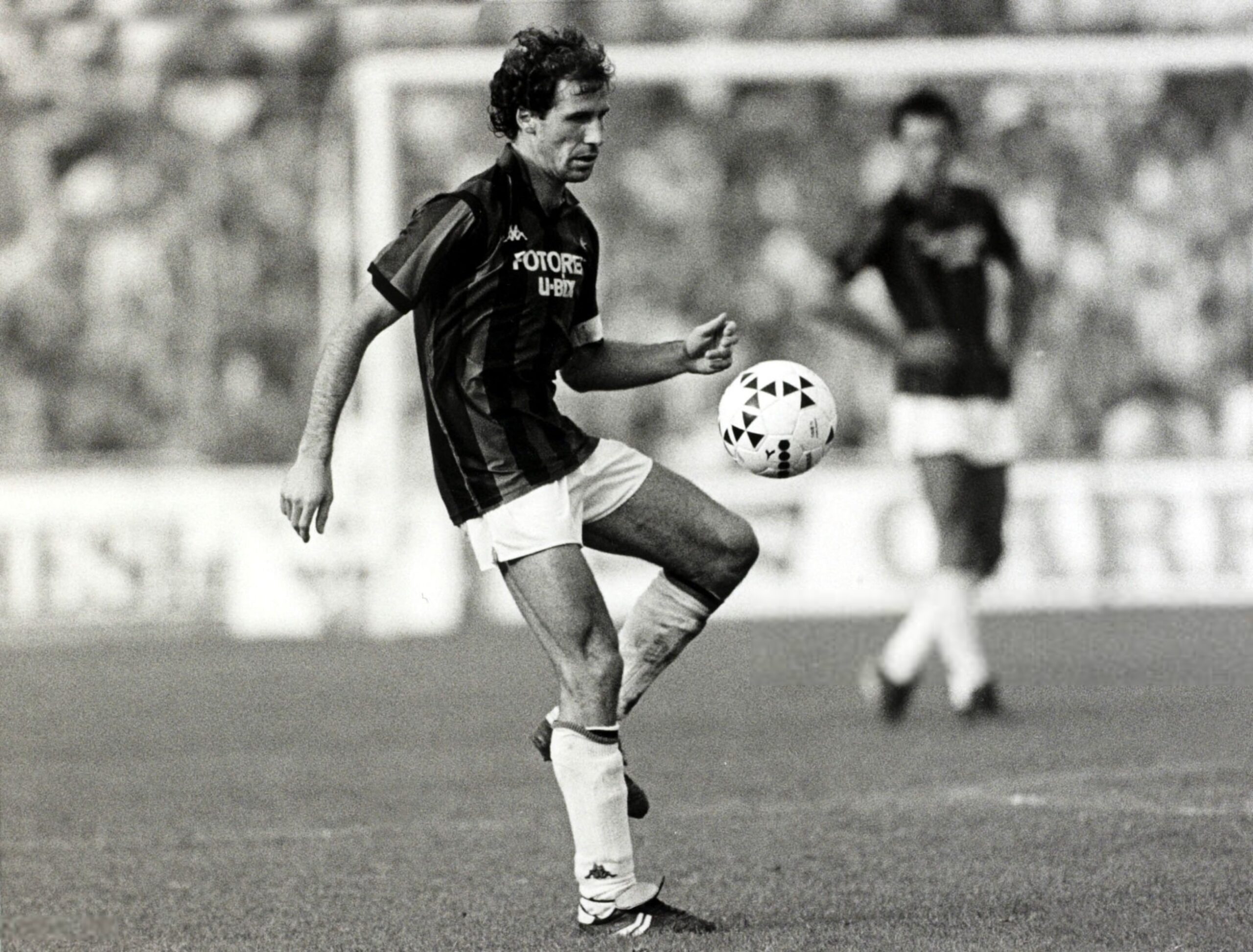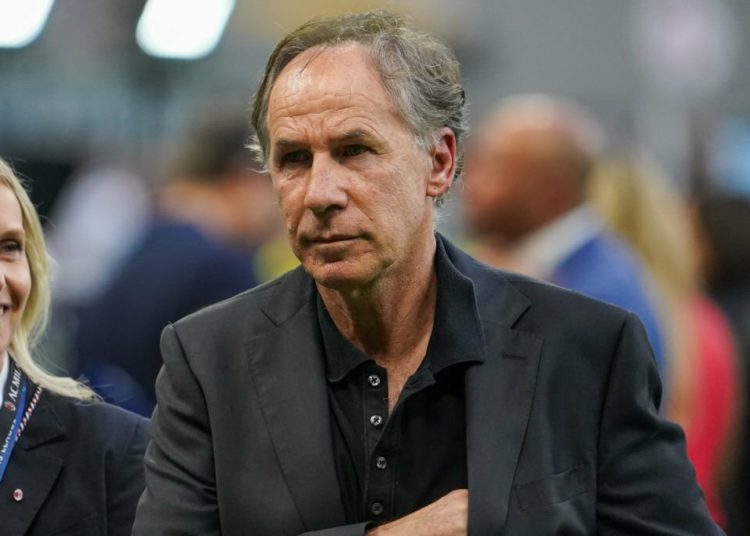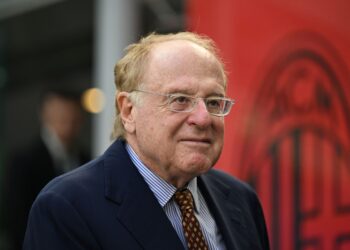Franco Baresi, the AC Milan honorary vice-president and former legendary centre-back, spoke to the microphones of Il Corriere della Sera. Here's what he said:
Question: you’ve almost written a book ('Still in the Game ('Ancora in Gioco') for Sperling & Kupfer) about the meaning of your life. Is that right?
"Yes, when you stop playing, you have to put on a new outfit and adapt. I tried to tell this journey, filled with travel, encounters, and emotions."
With all these journeys, one wonders if you’re almost more loved abroad.
"I certainly didn’t expect to still be so well-known worldwide. In Italy, though, I feel respected and loved."
Was the "Franco Baresi" stadium in Mongolia, where you laid the first stone, ever built?
"No, it was an electoral move by a candidate who took advantage of my presence."
One standout moment was after the penalty loss to Brazil at USA ’94, where you recount your emotion for the Brazilians celebrating in memory of Senna.
"Maybe they deserved to win, and they had that star up above guiding them. I believe that in sports, you need the strength and culture to recognize the greatness of others."
Roberto Baggio can’t forgive himself for missing the last penalty. You missed too: how do you cope? Baresi replied:
"He should calm down, because the truth is we wouldn’t have gotten there without him. I’ve always considered myself lucky to play that final after racing against time to recover from injury. Playing like that, with one of my best performances, is still a positive memory."
How did you feel when Pelé asked for a selfie with you?
"I was amazed and moved. He was a legend."
Did you really hear more noise in the Amazon rainforest than at a derby?
"Yes, it was an experience I never thought I’d have. I saw communities in a world of their own, incredible realities that make you realize how vast the planet is. It helps you put things in perspective and value the small things."

There are powerful images, like Ribery fainting beside you while visiting a pediatric oncology ward in Algiers.
"Football can ease suffering. We have that power. In Lebanon, we were among hundreds of refugees, and we saw kids forget everything in an instant with a ball. These experiences made me more aware of the human aspect: you need to listen, not be superficial, and ask others if they’re happy."
Was hearing Schillaci speak Japanese special? Baresi answered:
"There was an uproar from the kids. We were the first Westerners invited to the Fukushima area. Seeing sad faces change in front of a ball was unforgettable."
Where do you stand on the debate among ex-footballers about drug misuse?
"I think I never took anything harmful. In my opinion, destiny goes beyond that."
What was the virus in 1981 that kept you out for 4 months?
"A blood infection: once they identified the staph bacteria, they found the right antibiotic. But the search wasn’t short. When you’re young, you think you’ll recover the next day, but going from the field to a wheelchair was a tough time: I could barely walk due to the pain and had a lot of questions."
You grew up on a farm but have lived in downtown Milan for many years. Has your connection to the countryside faded?
"Going back would be hard, but growing up with that freedom was essential, even for becoming a footballer."
Is it too simplistic to say that Italy no longer produces champions because there’s less hunger? Baresi said:
"Today’s world is different, where young people don’t focus solely on one passion: for us, after family and school, there was only the ball."
Is Francesco Camarda different?

"Today’s kids are sharper, but they face more pressure and expectations: they have to be good at not getting crushed. And he’s a very steady and balanced boy."
What kind of teammate was Rivera?
"Extraordinary in his simplicity: at 18, I’d have lunch with him and Bigon at Milanello. He always looked out for me."
How did you feel when the Totonero scandal broke? (Match fixing scandal in Serie A and Serie B in 1980)
"I was shocked; I never thought these deceptions existed. It was a dark time: I realized I needed to be very careful about who was around me. You needed armor."
Baresi, from Serie B to the top of the world: did you ever get dizzy from success?

"My childhood taught me to be calm, happy when things go well, but aware that the journey is always long. In 1984, with Liedholm and the shift to a zonal defense, I began to understand my rise: I felt that style in my bones, my mind was tuned to a more offensive and organized game."
Did Milan’s win in Madrid bring back old feelings?
"It was a great victory, and we hadn’t managed that at the Bernabéu. But we advanced in knockout matches, and the weight was a bit different."
Did Silvio Berlusconi often surprise you?
"Almost always. We had a very good relationship: he cared about the athlete but also the person. And retiring the number 6 jersey was something unprecedented. Politics? Sometimes he asked if I’d be interested in running in Milan. Then he understood that my character wasn’t suited for it."
Did you ever argue with Nils Liedholm, Arrigo Sacchi, or Fabio Capello?
"How could I? I never had problems with anyone, maybe because I made them win... (laughs). A leader is always a simple man: he needs courage, ambition, but also loyalty and consistency to make everyone feel comfortable."
Does your relationship with Beppe (his brother, an Inter legendary defensive midfielder) endure despite time and rivalries?
"Yes, the rivalry was always healthy, and he was a great motivation and help: he was already in Milan when I arrived..."
Do you regret only coaching the youth teams?
"No, although I think I could have coached the seniors too, staying at Milan was a life choice. With the youth, we understood each other and had fun. I experienced and understood the thrill of winning as a coach. It might be even stronger than as a player. It’s more complete."
Do you still receive letters?
"Yes, even from China. And it’s only right to reply, to send back signed photos. It still surprises me: I think I left an image that people recognize. And it’s gratifying."
Did meeting director Werner Herzog, who gave you the most beautiful definition of yourself, move you?
"Yes. When I heard him speak about me on TV with Fazio, I was very surprised, especially since he wasn’t a football fan. But he touched on the human and technical side, the intuition of space and play, like no one else. Meeting him, I better understood the power of imagination, like Fitzcarraldo carrying a ship over a mountain. You have to aim for goals that you might not even think exist."
Herzog says "we can never betray the public." Did you manage that?
"I hope so. When you play, you don’t realize the sacrifices people make to come to games. But I always tried to respect others."
When you say, "who knows what I would have been with a mental coach," do you mean you could have done even more?
"Yes. Today’s football, in physical and mental preparation, is completely personalized. And this way, I could definitely have done more; maybe I would have played longer."
What does Francesco Totti wanting to return at 48 make you think? Baresi replied:
"A joke."
"I don’t know if I’d stay with the same club today": a strong statement from you.
"Football has changed; I never even had an agent. Staying at Milan was a natural thing."
Could you have earned more?
"Yes, but you always think about that later. Of course, the figures today are very different."
















